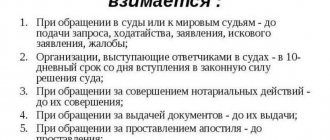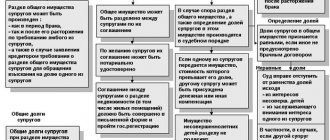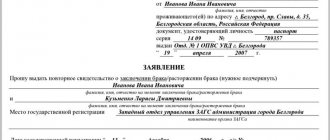The principle of monogamy
Like any other area of law, family law has a number of fundamental principles. These principles are imperative in nature, and their non-compliance entails the invalidity of legal relations.
Family law is endowed with the principle of monogamy. This principle has the second name of monogamy. It lies in the lack of legal possibility of registering a marriage between persons already married to other subjects of legal relations. This principle also applies if only one participant in an already registered marriage union acts as a person wishing to marry.
Provisions of Art. 14 of the RF IC determines the possibility of concluding such a marriage only if a document indicating the dissolution of the previous union is presented to the registry office. This could be a court decision, a document confirming the death of the second spouse, or a certificate of divorce.
Violation of the principle of monogamy refers to the concept of “circumstances preventing marriage.”
Law, theory and concept of law
The conditions for concluding a marriage are circumstances (legal facts) established by the UK and necessary.' for state registration of marriage; recognition of the marriage as valid. The conditions for marriage are:
• mutual voluntary consent of those entering into marriage; their reaching marriageable age; absence of circumstances preventing marriage.
Mutual voluntary consent of future spouses to enter into marriage is expressed. in writing in their joint application for marriage; orally during the procedure for registering a marriage in an organization
not a registry office and is confirmed by personal signatures. Achieving marriageable age (18 years ) at the time of state registration of marriage is necessary because marriage requires: • a certain degree of physical, mental, social maturity; • the onset of the citizen's full civil capacity. The UK does not establish restrictions on: • the maximum age for marriage; • age difference between future spouses. The UK allows the possibility of lowering the age of marriage to 16 years not only in exceptional cases (pregnancy of a minor, the birth of her child, etc.), but also in the presence of reasons that local governments consider valid. The unconditional criterion when resolving such issues is respect for the interests of the minor. Civil legislation establishes the legal status of minor spouses: if a person whose marriageable age has been reduced registers a marriage, he will acquire full civil capacity from the moment of marriage; if a trustee has been appointed to him, the guardianship is terminated; the acquired legal capacity (until the age of 18) is preserved even if the marriage is subsequently dissolved (except in the case of the marriage being declared invalid and the court making a decision on the loss of the minor’s acquired full legal capacity (clause 2 of Article 21 of the Civil Code)).
The right to establish the procedure and conditions under which marriage, as an exception, taking into account special circumstances, may be permitted before reaching the age of 16 years, is granted to the constituent entities of the Russian Federation. 2. Obstacles to marriage are legal obstacles in the presence of which a marriage cannot be registered, and if concluded, it is illegal and can be declared invalid in court . The IC establishes an exhaustive list of obstacles to marriage . Marriage is not allowed: between persons, at least one whom is already in a registered marriage . With this prohibition, family law enshrines the principle of monogamy in marriage (monogamy); between close relatives : in a direct ascending line (parents and children); . in a direct descending line (grandparents and grandchildren);
• between full and half- siblings ( a biological significance (prevents the possibility of transmitting many hereditary diseases and the appearance of inferior offspring), as well as moral and ethical significance; • between adoptive parents and adopted children , since the relations arising in connection with adoption are equal to the relations existing between relatives by origin. This prohibition is provided for moral and ethical reasons; • with a person who has been declared incompetent by a court due to a mental disorder . This
Same-sex marriage ban
Same-sex marriage in Russia is an officially unrecognized legal event. State registration authorities will not be able to enter into marriage between persons of the same gender.
Today, there is no legal regulation of the personal non-property and property rights of such couples and, in addition, there are no legal methods for conducting the adoption procedure by same-sex persons.
Violation of the principle of same-sex marriage also refers to the concept of “circumstances preventing marriage.”
Marriages between close relatives
Provisions of Art. 15 of the RF IC are an imperative norm that directly prohibits the registration of marriage between close relatives, that is, they relate to the concept of “circumstances preventing marriage.”
Refusal from the registration authorities will be received by persons who are relatives.
The legislator limits the possibility of persons in direct ascending and descending relationships to enter into family relationships.
Marriage cannot be concluded between: a parent and a child; grandparents and their grandchildren; brother and sister with a full or half blood relationship.
The primary reason for the emergence of this legislative norm is the likelihood of children with developmental defects, which is associated with incest. Historical facts indicate the presence of hereditary diseases in children whose parents are closely related.
The most important aspect in these legal relations is assigned to the moral and ethical side.
Why are intermarriages prohibited?
Marriage between persons who are closely related is impossible. The registry office will refuse such a legal act. Its representatives will justify their refusal by the existence of a regulatory provision established by Article 15 of the UK. On its basis, marriage cannot be concluded between those relatives who are in direct ascending or descending kinship. These include: parents and children; grandparents and grandchildren; full and half-brothers and sisters.
Genetic studies have proven that offspring produced by relatives have a large number of diseases in the field of genetics. The reason for this is incest. In most countries, such marriages are also prohibited by the church. Russian legislators see in marriage and family relations that arise between close relatives a breakdown in moral and ethical foundations.
Presence of a spouse for a person wishing to remarry
One of the basic principles of family law is the inadmissibility of several marriages at the same time by one person. That is, in other words, on the territory of the Russian Federation the prohibition of polygamy or polyandry is legally enshrined.
Compliance with this prohibition is regulated as follows. Persons who have expressed their intention to enter into a marriage, when submitting an application for marriage to the registry office, must present a document confirming the dissolution of the marriage with the previous spouse.
Such documents include a certificate of divorce or death of a spouse, a court decision on divorce that has entered into legal force.
The presence of close family ties between the persons entering into marriage. A marriage union cannot be concluded between relatives who are each other’s parent and child, grandmother (grandfather) and grandson (granddaughter), full brother and sister.
The legislation contains such a ban on marriage due to the fact that a marriage between close relatives may produce children with developmental defects or hereditary diseases. Such diseases appear in subsequent generations due to incest.
Please note: family law does not contain prohibitions on the marriage of first cousins, second cousins. To determine the possible risks of having children with hereditary diseases, individuals should undergo a genetic examination. During the examination, blood samples are taken from individuals for analysis, which will show the percentage of the possibility of giving birth to sick children.
States where same-sex unions are legal
Same-sex marriage has been legalized in 20 countries around the world. The largest number of such unions are registered in the UK and Mexico.
It is not possible to register a same-sex marriage throughout Costa Rica. There are still controversial opinions about this legal institution.
Since 2001, official permission to enter into same-sex marriages has been received in the Netherlands, and since 2015 - in the USA.
A large number of countries are opposed to same-sex marriage at the legislative level.
Countries that have banned same-sex marriage
There are 60 countries in the world where same-sex marriage is prohibited. Particularly cruel treatment of persons involved in same-sex relationships is observed in Third World countries, where both prison terms and the death penalty can be used as legal punishment.
The largest number of countries that have banned same-sex marriage are Muslim.
As for Russia, there is no direct ban, but it is impossible to register a marriage between representatives of the same sex. First of all, this circumstance is connected with the very definition of marriage established by the UK. According to its norms, marriage is understood as the union of a man and a woman. It is this definition that completely excludes the presence of official same-sex marriage and family relations.
Author of the article
Responsibility for data concealment
The registry office employee warns citizens about the responsibility for concealing obstacles to marriage at the stage of submitting an application. Also, future spouses have the right to know about each other’s health status. If one of them hid serious illnesses from the other (for example, positive HIV status), then the marriage may be declared invalid in court.
Obstacles to entering into a legal marriage, which are approved at the legislative level, have quite logical justifications and are dictated by concern for the health of future citizens of the Russian Federation. There is no point in trying to circumvent the law in this matter; as a result, the lie will sooner or later be exposed, and the marriage will be declared illegal.
Didn't find the answer to your question? Find out how to solve exactly your problem - call right now:
Marriage in Russia is possible subject to the conditions established by the Family Code of the Russian Federation and at the same time in the absence of circumstances that prevent marriage.
Conditions for marriage are circumstances established by law, the presence of which is necessary for marriage. The conditions for marriage are defined in Art. 12 of the RF IC is the voluntary consent of persons wishing to get married and their reaching marriageable age.
The will of persons entering into marriage must be expressed personally and freely, without any coercion, both during the application for marriage and during its registration.
At the time of marriage registration, you must be at least 18 years of age for marriage. If there are good reasons, local governments have the right to allow persons over 16 years of age to marry. As an exception, taking into account special circumstances, marriage may also be permitted for persons under the age of 16.
Circumstances preventing marriage
Registration of marriage should not be carried out if there are circumstances that prevent marriage, provided for in Art. 14 IC RF. The circumstances under which marriage is not permitted are as follows.
1. Marriage between persons, at least one of whom is in another registered marriage, is not permitted.
This condition corresponds to the principle of monogamous marriage. When registering a marriage, previously married persons must present a document confirming the termination of the marriage (divorce certificate, death certificate of the spouse, etc.).
In accordance with paragraph 2 of Art.
25 of the RF IC, spouses do not have the right to enter into a new marriage until they receive a certificate of divorce from the civil registry office at the place of residence of either of them.
2. Marriage between close relatives is not allowed.
Close relatives include relatives in a direct ascending and descending line: parents and children, grandparents and grandchildren; as well as full and half brothers and sisters. In this case, the relationship can also be extramarital.
This is explained by the inadmissibility of incest and the high number of diseases and malformations in the offspring of such marriages. Cousins (cousins) and more distant kinship, as well as property relations are not an obstacle to marriage - marriages between half-brothers and sisters are not prohibited).
3. Marriages between adoptive parents and adopted children are prohibited.
This prohibition is justified by both ethical and legal considerations, since the relationship between these persons is legally equivalent to the relationship between parents and children.
4. Marriage between persons is not permitted, at least one of whom has been declared incompetent by a court due to a mental disorder.
This is due to both medical considerations and the inability of an incapacitated person to give informed consent to marriage, which leads to non-compliance with the principle of voluntariness of a marriage. This provision does not apply to persons with limited civil capacity.
Our legislation does not provide for any other restrictions on marriage other than the four mentioned above.
The inadmissibility of same-sex marriage is not directly enshrined in Russian legislation, however, the Family Code of the Russian Federation contains direct rules on the marriage of a man and a woman. Anything else is not allowed. Same-sex marriages concluded in other countries where such a procedure is permitted are not recognized in Russia.
Also, in Russian legislation there are no norms regulating marital relations after a gender change by one of the spouses. Considering the inadmissibility of same-sex marriage, we can conclude that a marriage after a gender change will be declared invalid. However, there are also no restrictions on the marriage of persons who have changed their gender.
Obligation to notify the future spouse of the presence of HIV infection or sexually transmitted disease
The legislation does not establish any requirements for the health status of persons entering into marriage. Russian legislation restricts the right to marry only for incapacitated persons. However, when concluding a marriage, a citizen must give voluntary consent to marriage, which is impossible in the presence of certain diseases.
One of the persons entering into marriage must notify the other person of the presence of a sexually transmitted disease or HIV infection. If the person entering into marriage concealed the presence of a sexually transmitted disease or HIV infection from another person, the latter has the right to apply to the court to have the marriage declared invalid.
The statute of limitations for such categories of cases is 1 year from the moment the person learned or should have learned about the presence of the disease.
Expert opinion
Egorov Stepan Stanislavovich
Legal consultant with 7 years of experience. Specialization: civil law. More than 3 years of experience in document examination.
Russian legislation also provides for criminal liability for infection with a sexually transmitted disease or HIV infection (Articles 121, 122 of the Criminal Code of the Russian Federation).
Marriage between:
persons of whom at least one person is already in another registered marriage;
close relatives (relatives in a direct ascending and descending line (parents and children, grandfather, grandmother and grandchildren), full and half (having a common father or mother) brothers and sisters);
adoptive parents and adopted children;
persons of whom at least one person has been declared incompetent by a court due to a mental disorder.











